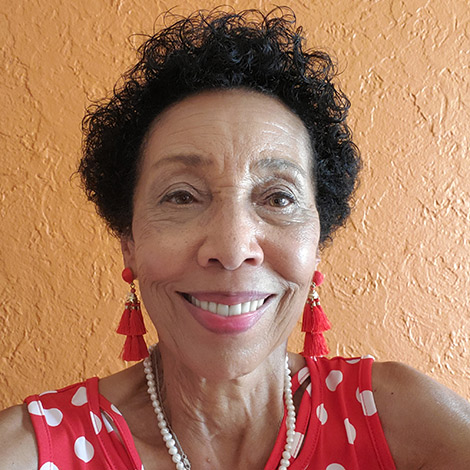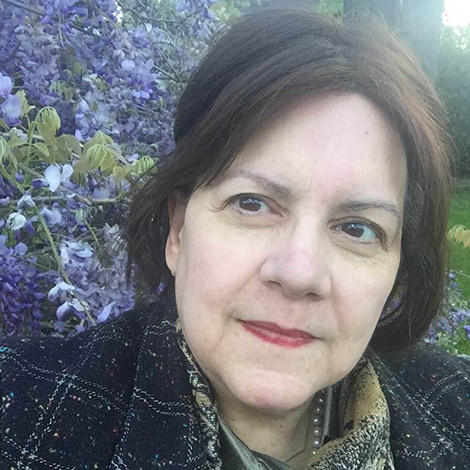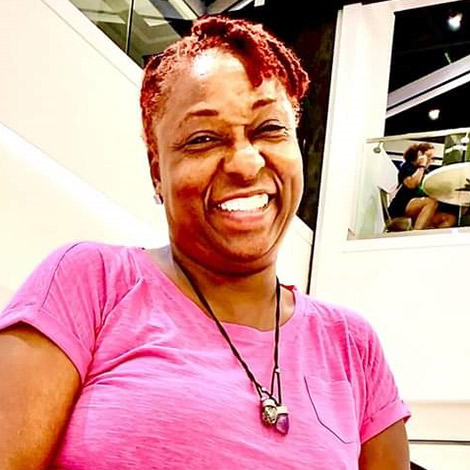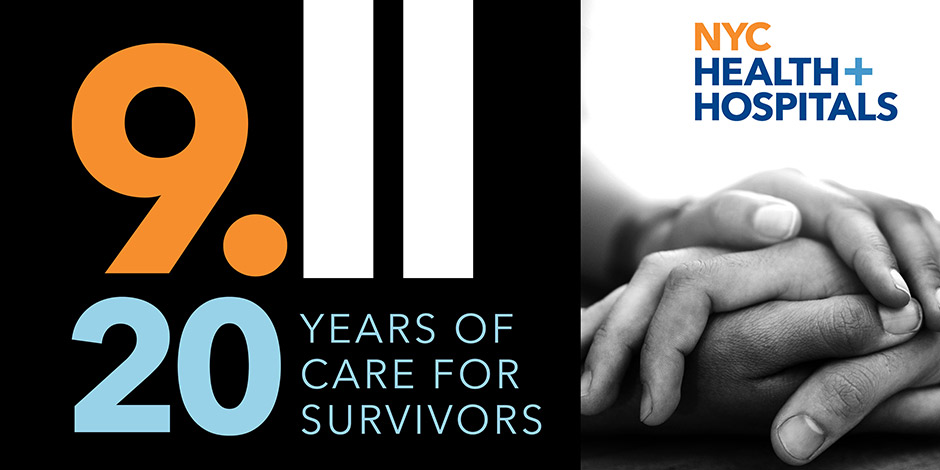Twenty Years After 9/11, Recovery for WTC Survivors Continues
The World Trade Center Environmental Health Center (WTC EHC) treats medical and mental health conditions of residents, students, workers, and passersby who were exposed to pollutants and debris after the 9/11 attacks.
For the past 20 years since 9/11, the WTC Environmental Health Center has helped more than 13,000 members who receive care at its three clinics at NYC Health + Hospitals/Bellevue, Gouverneur, and Elmhurst.
Each clinic provides services with no out-of-pocket costs to patients eligible for care under the Zadroga 9/11 Health and Compensation Act. A diverse team of clinical providers, such as physicians, therapists, psychiatrists, cancer care managers, and social workers all work together to serve patients’ needs and treat their conditions.
Meet three patients who received care at the WTC Environmental Health Center:

Doris Bodine
NYC Health + Hospitals/Elmhurst
On September 11, 2001, Doris Bodine was on her way to work at the World Trade Center. She was running late that day because she had stopped to vote. As she was crossing the street to enter her office, the second plane struck the towers. “I went back to work in that area in December 2001, and we were told that the air was okay, which was not true as we found out,” said Bodine.
“I eventually became a yoga teacher, and was very active physically, but I started to notice I was getting out of breath around 2018. It started as a little cough, and I thought it was maybe seasonal allergies, but I was diagnosed with COPD that year.”
Bodine became a registered member of the WTC EHC in 2019, just before the COVID-19 pandemic struck New York City. Throughout the surge in 2020, Bodine developed mental health issues which compounded her physical health conditions.
“I couldn’t take the subway to yoga class or the gym, I couldn’t go walking with my walking group, I couldn’t have friends over for gatherings, I couldn’t travel, and I was very depressed,” said Bodine.
The staff at NYC Health + Hospitals/Elmhurst helped to ground Bodine, encouraging her through virtual visits to get out and spend some time in her local parks.
“The staff in this program understand what we have been though as survivors. When you come for treatment, even the way you’re greeted, you can tell they understand you and want to give you the best, most compassionate treatment available,” said Bodine.

Carmen Rodriguez
NYC Health + Hospitals/Gotham Health, Gouverneur
Carmen Rodriguez, a reporter for Radio Martí, witnessed the 9/11 attack aboard the Staten Island Ferry on her way to Manhattan for work. When the ferry reached Manhattan, many remained on board to return to Staten Island, but Rodriguez walked into Manhattan with her press credentials in hand, ready to report on the events live.
“During the attack, I had a paper towel that I would wet with loads of water and place it over my nose and mouth. It would be dry within a minute. Then I’d repeat and wet it again over and over. I knew there would be consequences,” said Rodriguez.
By 2007, Rodriguez began experiencing shortness of breath, and her condition became worse and worse. After years of suffering, she sought care with the WTC EHC and was diagnosed with asthma in 2012 at NYC Health + Hospitals/Gotham Health, Gouverneur.
“Living with asthma has thrown me off in a big way, as changes in weather now affect me and sometimes give me asthma attacks,” said Rodriguez. “The medical treatment for asthma through the WTC EHC has kept me working and on my toes. I would not be able to afford my treatment were it not for this program.”
“I cannot thank the staff at the WTC EHC enough, because I am here, useful and more serene, thanks to them,” said Rodriguez. “I would highly recommend any person to seek treatment with the experts of the WTC EHC. We all suffered collectively on 9/11 and we can all now heal individually with the help of these caring professionals.”

Wanda Blakely
NYC Health + Hospitals/Bellevue
Wanda Blakely was working in the Fulton Street subway station as a Traffic Checker for the MTA on the morning of 9/11. She went upstairs for a break and found complete chaos, prompting her to join a crowd running towards the Brooklyn Bridge which would lead her home to her family. She returned to work a few days later when train service was restored. The MTA asked for customer service volunteers and Blakely was one of eleven people who responded.
“The smell in the area was horrible and I immediately started feeling symptoms. I had migraines and sinus headaches. I also started having asthma attacks,” said Blakely. “In 2004, my symptoms became severe, and I had to go to the emergency room for treatment. In 2010, I was diagnosed with breast cancer.”
Blakely underwent a BRCA test to identify breast cancer susceptibility genes and it was determined that she didn’t have the cancer gene. Her doctors suggested that Blakely’s breast cancer may have been a result of 9/11 exposure. Blakely’s daughter encouraged her to contact the Victims Compensation Fund since she had spent so much time downtown near Ground Zero in the aftermath of the events.
“My mental health therapy through the program has helped me deal with PTSD and depression. It has helped me be able to share my story, because so many of us held in our feelings for too long,” said Blakely.
Blakely’s cancer is currently in remission, and she has partnered with the American Cancer Society to build breast cancer awareness. “I believe the work I’ve done in the WTC EHC helped me find my voice,” she said.
For eligibility and enrollment of people new to the WTC EHC, call toll free 1-888-982-4748 or visit www.cdc.gov/wtc.
To contact the NYC Health + Hospitals WTC Environmental Health Center clinics, call 877-982-0107 or visit the WTC Environmental Health Center webpage.

